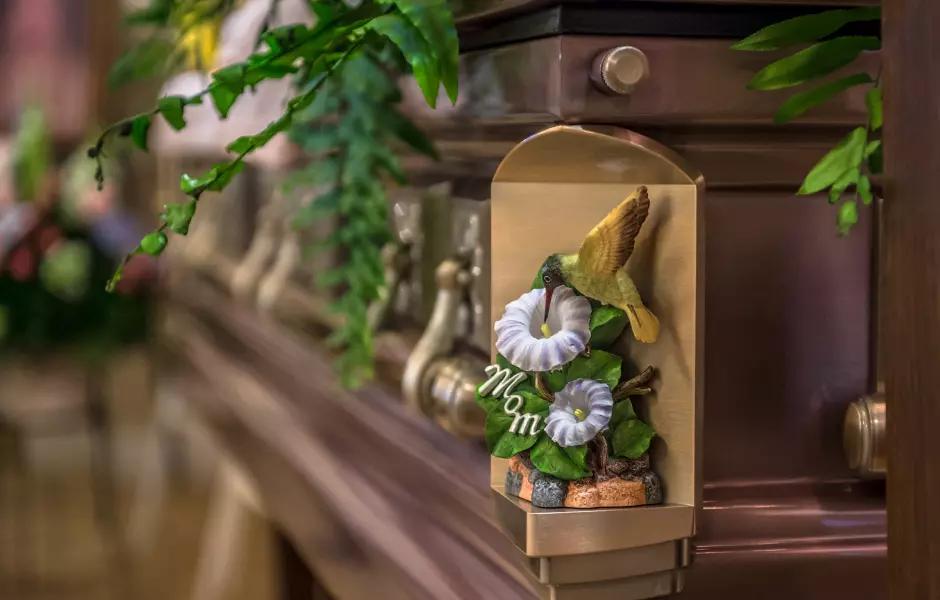When someone passes, one of the most important decisions that need to be made is what type of casket to use for their remains. This decision can be difficult, especially if you are not familiar with the options available.
In this guide, we will help you decide which option is best for your loved one.
Here’s what we’ll be covering:
Factors to consider when choosing a casket
The typical cost of caskets
The different types of materials used for caskets
Choosing the right size of casket.

1. Factors to consider when choosing a casket
When choosing a casket, there are several factors to consider. The type of material, the style and the price are all important issues. However, the most important consideration is usually the size of the casket: you'll need to choose a casket that is large enough to accommodate your loved one.
It is also important to consider the type of material. Each type of material has its own benefits and drawbacks, so be sure to research each option before making a decision.
We will discuss these factors in more detail below.
2. The typical cost of caskets
Cost is a key factor in selecting a casket, as caskets can quickly become very expensive. They commonly range from $2500 up to $10,000 for the more elaborate options.
There are many different types of caskets available and normally they can be customized to your liking at additional cost, so it's important to do some research before making a final decision.
Take some time to browse through your options and talk to a funeral professional if you’re struggling to find the perfect casket for your loved one.
3. Materials used for caskets
There are many different types of caskets available. You can choose from a variety of materials, including wood, metal, or even glass or cardboard.
As mentioned, you can also personalize the casket to reflect the deceased’s personality or interests.
a) Metal caskets
Metal caskets are a popular choice because they provide extra protection from the elements.
These coffins contain an enclosure with thick rubber “gasketing” around its lid, which creates a sealed environment to protect the one interred inside it.
Metal caskets can be made out of basic steel or precious metals like copper, bronze, gold and titanium.
b) Wood caskets
The vast selection of wood caskets can entice many to choose this kind of casket, but buyers should pay attention to details when purchasing these products.
Often they use common woods that are finished to replicate premium hardwoods. Be careful not to pay a higher price for a lower grade of wood that is veneered to look like something it is not.
c) Eco-friendly caskets
A great way to be environmentally conscious is to choose an eco-friendly casket.
These are made from biodegradable materials ghat will naturally break down over time. They're specially designed so that they won't harm or contaminate the earth like other burial containers might do.
d) Cardboard caskets
Another eco-friendly and budget-friendly option for cremations and burials is the cardboard casket. They can also easily be customized with paint or digital printing to make them more personal, making them one of the most popular choices among funeral consumers today.
If you are unsure which material to choose for the casket, speak with your funeral director. They will be able to help you select the perfect casket for your loved one.
To get started, you can compare funeral directors here.
4. Choosing the right size of casket
When choosing a casket, size is an important consideration. You'll want to choose one that is the right size for your loved one. This means taking into account their height and weight, as well as the dimensions of the casket itself.
To begin with, there are four standard sizes for caskets: urn, mini, baby grand, and full. The urn size is generally used for cremations, while the other three sizes can hold either a body or cremains. If you're not sure which size to pick, consider how much space the deceased will need to lie comfortably.
Next, you'll need to decide on the dimensions of the casket. Caskets come in a variety of lengths, widths, and heights.
By keeping these factors in mind, you can be sure to choose a casket that is the right size for your needs.
If you're not sure which size to choose, consult with a funeral director or casket retailer to get help making your decision.
We hope this helps
When choosing a casket, it's important to keep in mind the person who will rest in it. By considering their size, personal style, and the casket materials available, you can find the perfect casket for their final farewell.
So, take your time and browse the options available to find the right casket for your loved one. And if you're not sure, a funeral professional can help you make the right decision.
To get started, you can compare caskets here.
Additionally, If you would like to create an online memorial to remember your loved, you can create an online memorial here.

